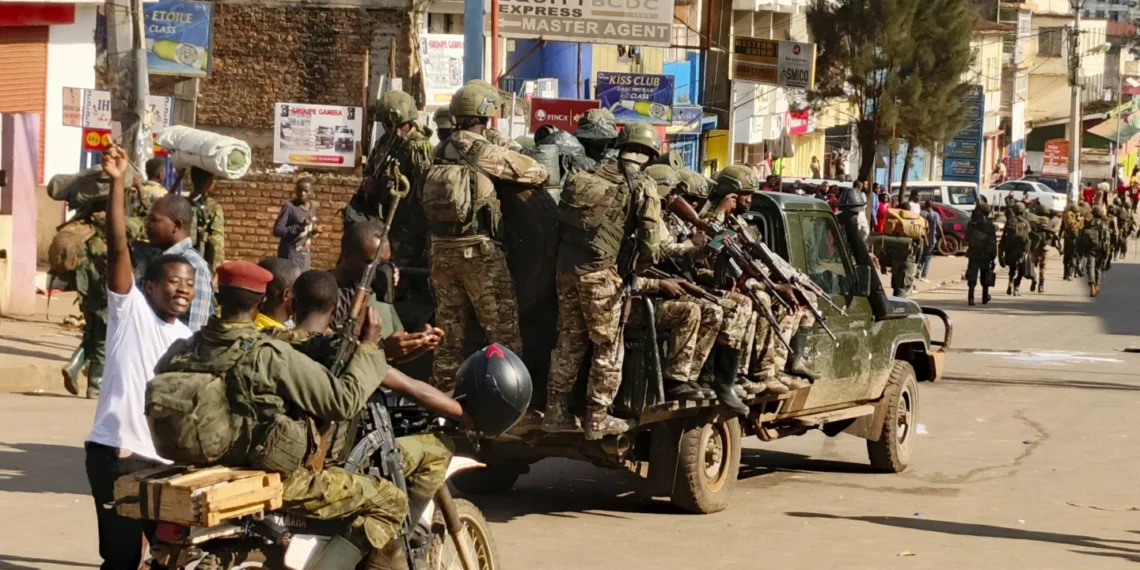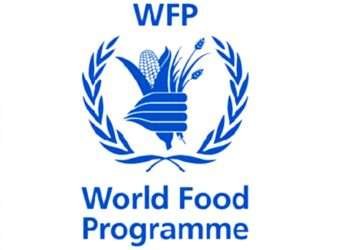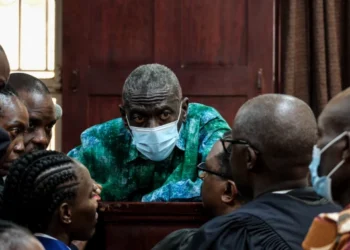Rwanda-backed rebels have taken control of Bukavu, a major city in mineral-rich eastern Congo, further intensifying concerns over regional stability.
The Congolese government confirmed the occupation, stating that M23 rebels had entered the city to “restore order” following the withdrawal of government forces.
The Congo River Alliance, a coalition that includes the M23, announced that its fighters had intervened to address Bukavu’s security issues. “Our forces have been working to restore the security for the people and their property, much to the satisfaction of the entire population,” said alliance spokesperson Lawrence Kanyuka.
Despite years of conflict in the region, this marks an unprecedented expansion of M23’s reach, with government forces offering little resistance. Congolese officials have vowed to regain control of Bukavu, but as of Sunday, no troops had been deployed. Witnesses reported seeing soldiers fleeing alongside thousands of civilians on Saturday.
The M23, one of over 100 armed groups vying for control over eastern Congo’s vast mineral wealth, is believed to be supported by an estimated 4,000 troops from neighboring Rwanda, according to U.N. experts. The ongoing conflict has resulted in the displacement of more than six million people, making it the world’s largest humanitarian crisis.
Standing outside the South Kivu governor’s office in Bukavu, Bernard Maheshe Byamungu, an M23 leader sanctioned by the U.N. for human rights abuses, declared that residents had been living in a “jungle.” “We are going to clean up the disorder left over from the old regime,” he stated, as some in the crowd encouraged the rebels to “go all the way to Kinshasa,” Congo’s capital, nearly 1,000 miles away.
The Congolese government, for the first time, acknowledged Bukavu as “occupied” in a statement on social media. It assured citizens that efforts were underway to “restore order and territorial integrity.”
However, many Bukavu residents expressed frustration over the lack of immediate action. “Is the government waiting for them to take over other towns to take action? It’s cowardice,” said local resident Blaise Byamungu, emphasizing the sense of abandonment felt in the city.
Conflict Risks Regional Spillover
The rapid advance of M23 has revived fears of broader conflict in the region. Unlike in 2012, when the group briefly seized Goma before withdrawing under international pressure, analysts now believe M23 has political ambitions.
The roots of the conflict are deeply intertwined with ethnic tensions that have persisted for decades. M23 claims to be protecting ethnic Tutsis in Congo, while Rwanda asserts that Tutsis in the country face persecution from Hutu groups, including former militias responsible for the 1994 genocide in Rwanda. Many Hutus fled to Congo after the genocide and formed the Democratic Forces for the Liberation of Rwanda (FDLR), a militia group that Rwanda accuses of being “fully integrated” into the Congolese military — an allegation the Congolese government denies.
Political analysts note that the new leadership structure of M23, particularly the emergence of Corneille Nangaa, who is not Tutsi, provides the group with a “new, more diverse, Congolese face.”
Christian Moleka, a political scientist at the Congolese think tank Dypol said, “M23 has always been seen as a Rwanda-backed armed group defending Tutsi minorities, but this shift changes the perception.”
Regional and International Responses
Congo’s President Felix Tshisekedi, who initially denied losing control of Bukavu, has since acknowledged the seriousness of the situation. His government warned that the conflict could expand beyond Congo’s borders.
South African troops have been deployed to Goma, while Burundi has sent forces to Bukavu. However, Burundi’s President Evariste Ndayishimiye suggested on social media that his country would not escalate its involvement in the fighting, raising doubts about the effectiveness of regional interventions.
The crisis was a focal point at the African Union summit in Ethiopia over the weekend, with U.N. Secretary-General António Guterres warning that the conflict risked spiraling into a regional war. However, the international community remains hesitant to take decisive action against M23 or Rwanda, whose military is among Africa’s strongest. Most international actors continue to advocate for a ceasefire and diplomatic negotiations.
READ ALSO: Fmr. AG Accused of Document Shredding: Braker-Vormawor Demands Probe























